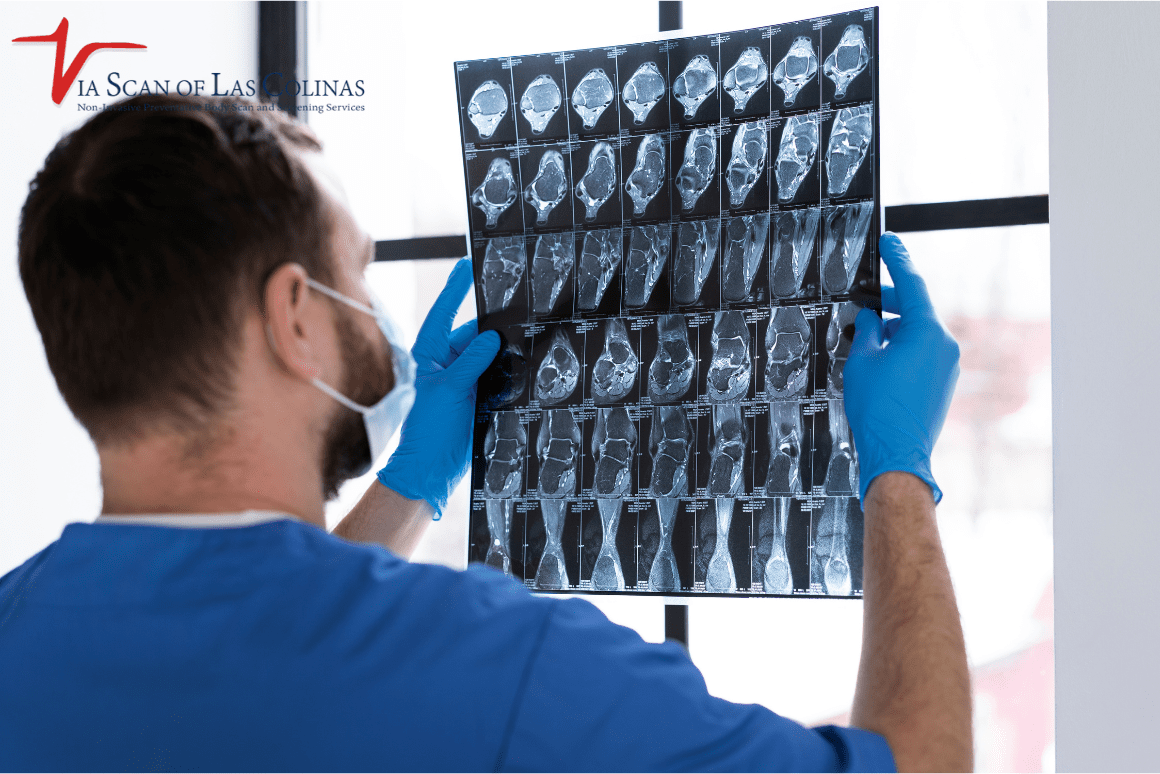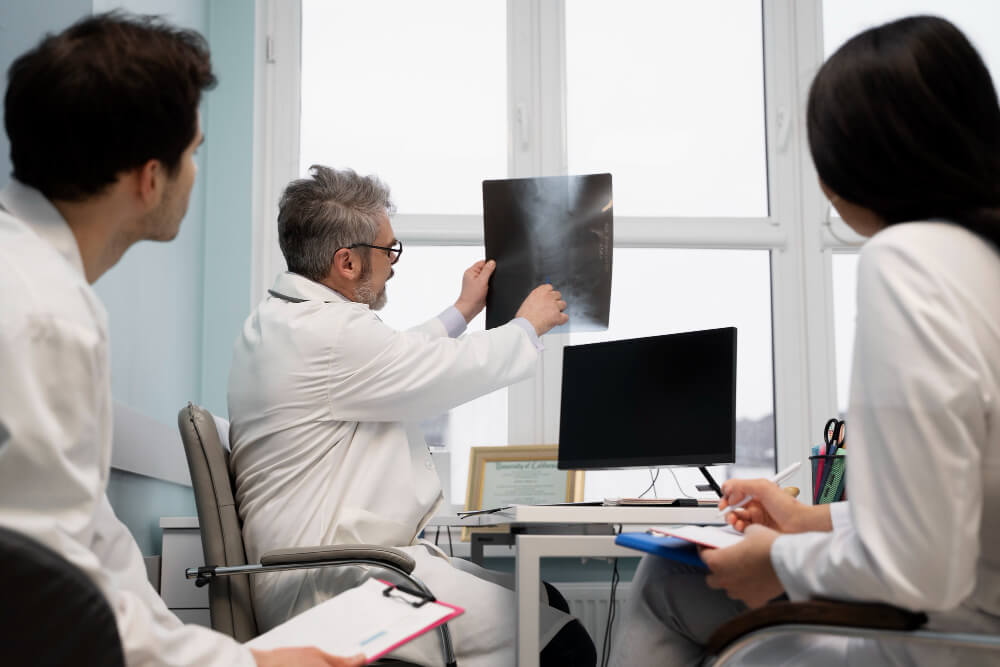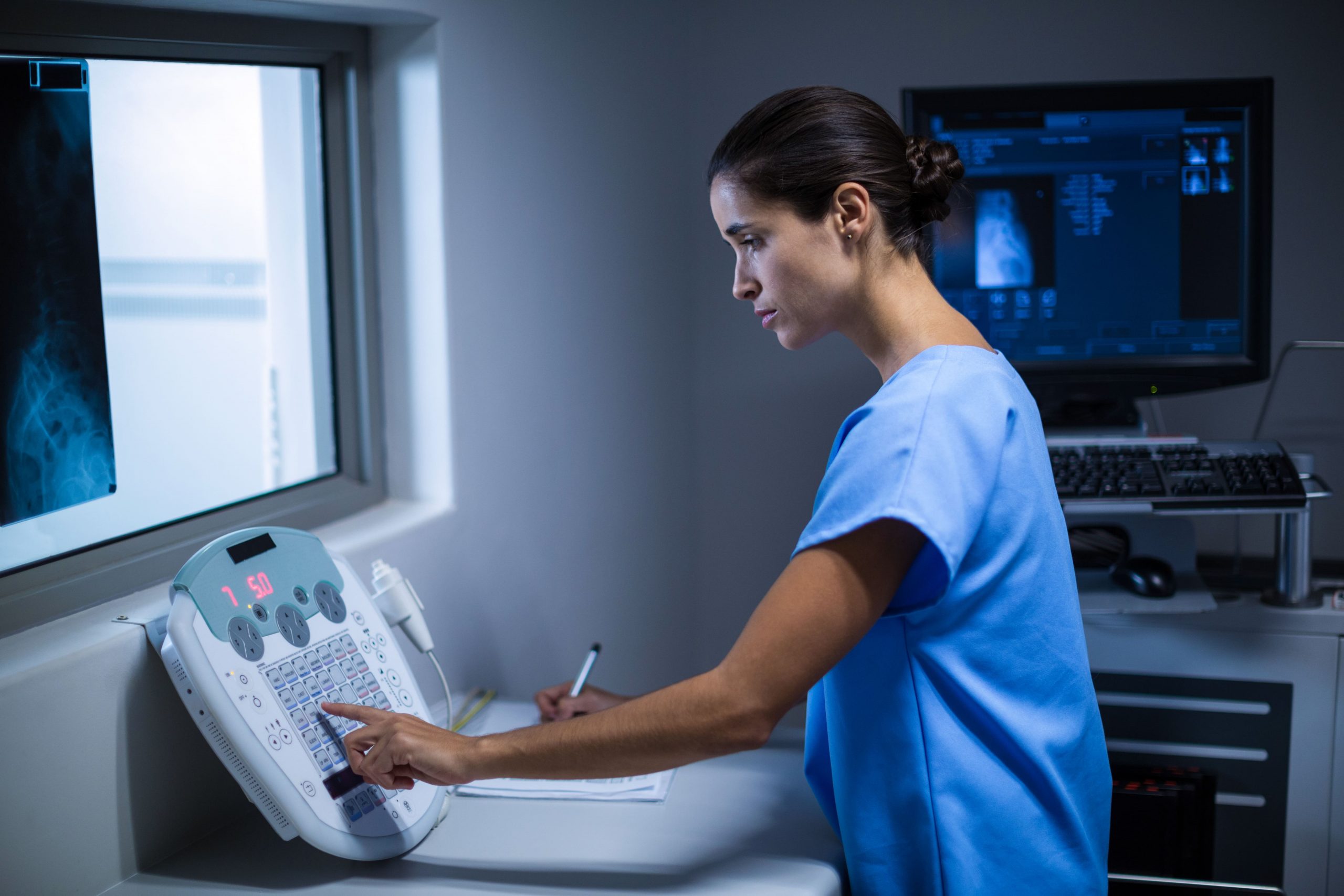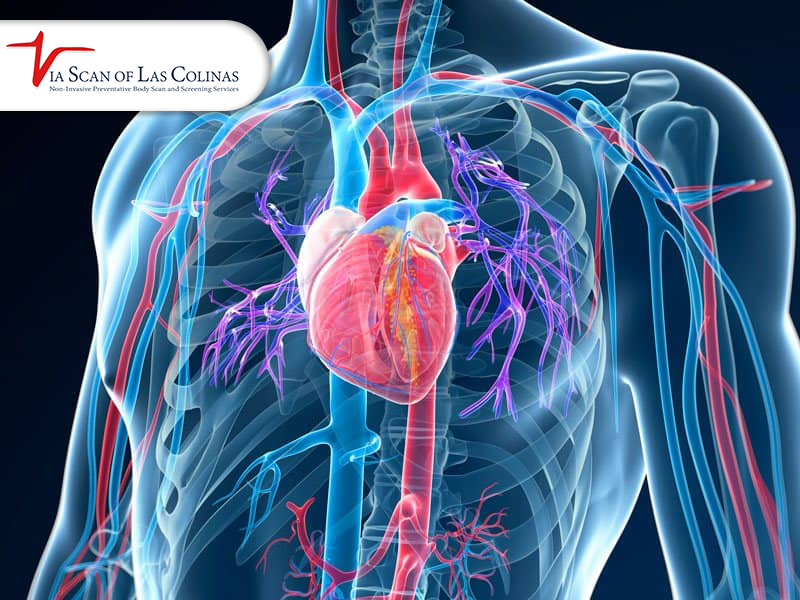When a healthcare provider suggests a CT scan for diagnostic purposes, you might feel curious about it. It is completely common to have certain questions, such as what happens during a CT scan, whether it is risky, or whether it has any side effects. Knowing about the imaging process and how it works will make you feel more guided.
Let’s walk you through each step of the CT scan, from how it works to scan preparation to what happens during or after the procedure.
What is a CT scan?
A computed tomography (CT) scan is a type of advanced imaging test used in medical terms to evaluate injuries and diagnose diseases. This scan utilises X-ray technology and advanced computers to create 3D images of various body parts from multiple angles.
This will help your healthcare provider to see your internal structures, such as bones density scan, tissues, and blood vessels from multiple angles clearly. The scanning images are typically used to evaluate the progress of ongoing treatments, diagnose diseases, or detect certain infections, such as cancer.
How does imaging technology work?
The CT scanner is a large, doughnut-shaped machine with a moving bed attached to it that will go in and out while taking pictures.
X-ray source
While you are lying down on the table, the X-ray source will move around your body, sending radiation to your targeted body parts.
Detectors
Advanced detectors will detect the emitted radiation on the other side of the body.
Computer processing
The computer will collect the data and combine it to create a 3D image that your healthcare provider can see on the screen. You can see them later as well.
This advanced, accurate, and precise technique will help doctors to see tiny fractures or early tumours before they spread.
Why do I need a CT scan?
Your doctor might suggest a CT scan for various reasons, including:
- Detect bone fractures
- Identify any early tumours or blood clots
- Detect blockages in blood vessels
- Diagnose infections and heart disease
- Monitor the progress of treatment
- Trace disease progression
A CT scan is the most trusted choice in cases where healthcare providers need quick and clear answers.
How do I prepare for the CT scan?
The scan preparation depends on the scan your doctors have suggested for you. Moreover, your doctor will explain everything you need to know, from how you need to prepare for the scan to what will happen during the procedure. Here are some guidelines:
- You may be advised to stop eating or drinking a few hours before the scan.
- If you are allergic to any dye, chemical, or medication, you need to inform your doctor beforehand, and they will adjust your treatment accordingly.
- You must arrive early on the scan day to become familiar with the surroundings and remain calm.
- Remove all the jewellery before the scan, as any metallic object can distort the images, leading to inaccurate results.
- It’s better to change into a hospital gown for a more comfortable journey.
Furthermore, if you have any questions or concerns, you can ask your doctor right away.
What should I expect during my CT scan?
- First, you will arrive at the facility, and your doctor will review all the instructions and re-explain the entire process to ensure there is no confusion.
- They will inject a contrast dye to make some structures more visible. It can be either injected into your blood or given orally, depending on the type of scan.
- You will be asked to lie on the bed.
- The bed will go inside the scanner during the scan.
- Throughout this time, your doctor will monitor you, and you can even talk to your doctor.
- When the bed begin to move inside the scanner, you will hear some whirring sound as well.
- During the scanning, you may be asked to stop breathing. This will be only for a few seconds.
The computer will collect all the images, and your doctor can now see them for diagnostic purposes. If you want, a board-certified radiologist can review the results and decide what’s next.
How long does a CT scan take?
The entire process is completed in under an hour, with most of the time spent preparing for the scan. The scan itself only takes 5 minutes.
Are there any risks of a CT scan?
Healthcare providers consider CT scans completely safe because they use low doses of radiation. However, if you have certain health concerns, you can talk to trained professionals for a clearer and better understanding.
People often ask, “Can I get a CT scan while pregnant? Or does it have a side effect?” The scan usually doesn’t have side effects, but some might feel nauseous due to the dye; however, it is rare. Moreover, if you are pregnant and need to go through a scan, it is wise to consult with the doctor.
Choose Our Full Body Scan
Early Detection Saves Lives!
-
- Accurate
- Quick Result
- Affordable
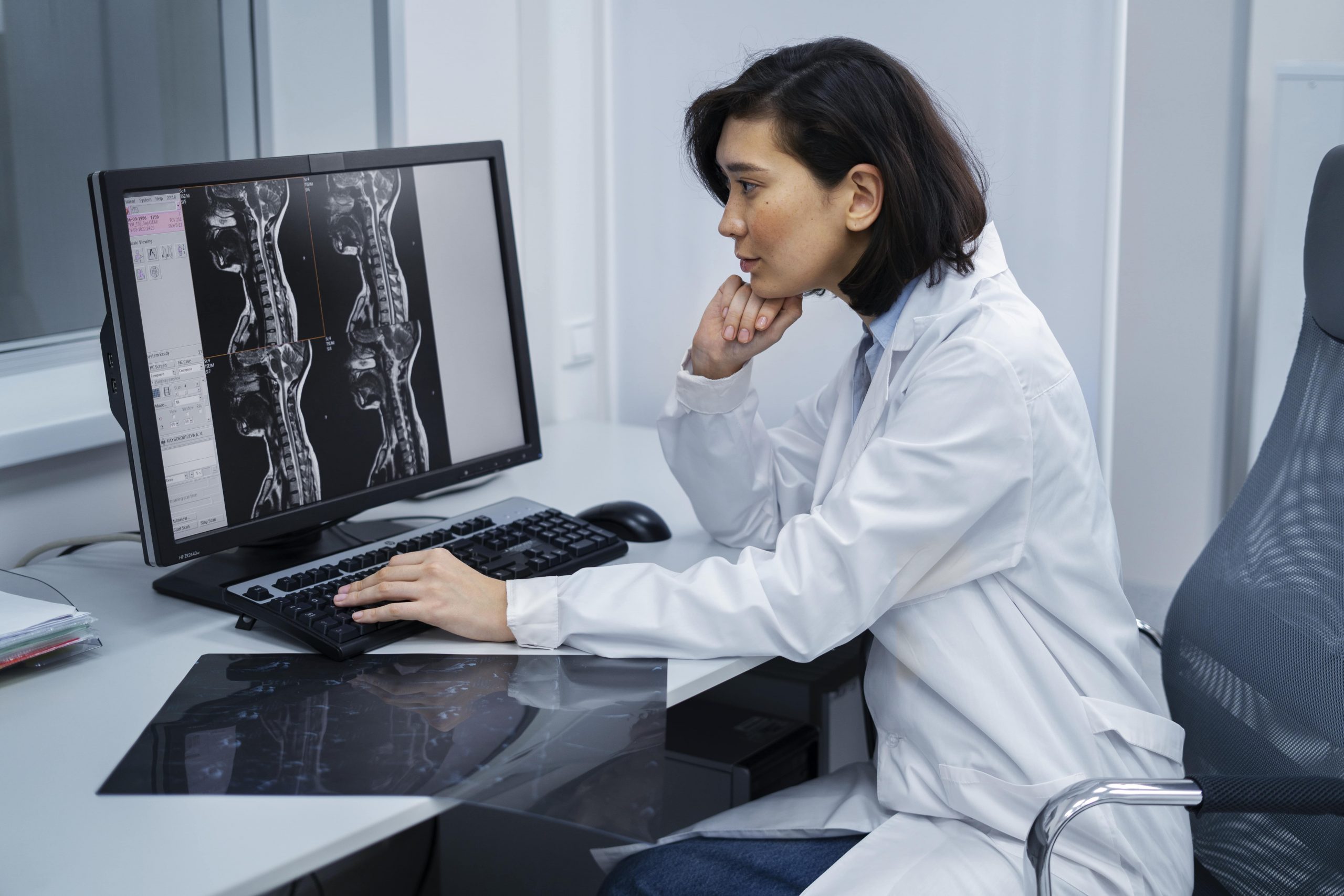
Conclusion
A CT scan is more than just a diagnostic test; it provides clear answers and guides you to the right treatment options. It’s normal to have questions, and finding a trusted partner for a CT scan you can count on for your health is essential. At ViaScan, we offer low-dose CT scans and prioritise patient safety and comfort to ensure you receive the best care. Our trained professionals will answer all your queries and will walk you through each step.
If your doctor has recommended a CT scan, trust ViaScan for quick, accurate, and trustworthy answers.

